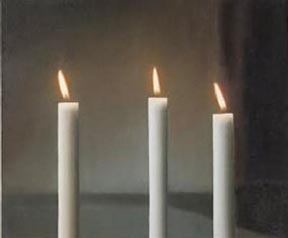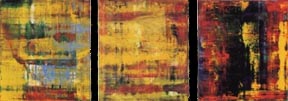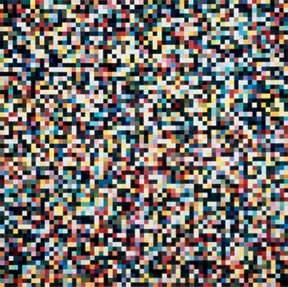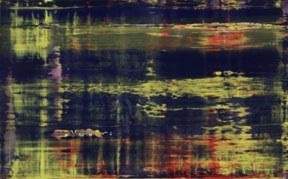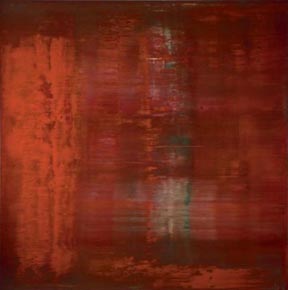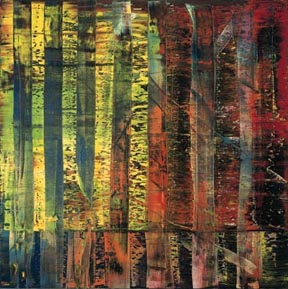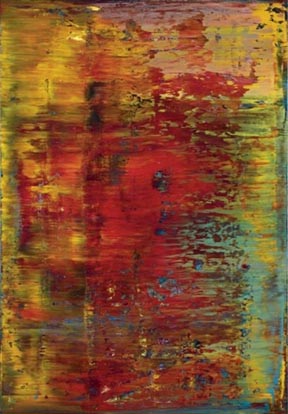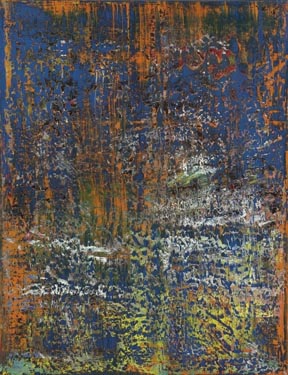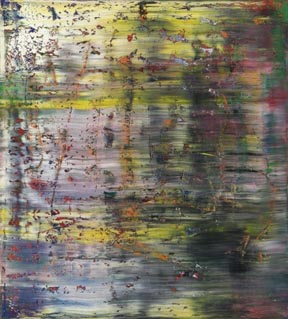|
Highest
prices realized by Richter's paintings at auctions The success of a painter at international auctions is - however laced with fads and follies - a measure of public acceptance and understanding of his work. The latter is the purpose of this compilation of Richter's sales over the years, all except one were first sales. Any well-known painter can sell his work in the $100,000 range and have it displayed in museums, a few achieve prices above $ 1,000,000. In the end the price of a painting is only of relative importance, but what is bought is revealing of the vagaries of the art scene. It is seen that Richter had to wait twenty years before in 2001 one of his paintings broke the one -million-dollar barrier - and then it was the sentimental CR 531-1 “Three Candles”! Meanwhile his Abstract Paintings sold at most in the $500,000 range, until in 2004 CR 350-1, “4096 Colors”, sold after 30 years of wandering from one exhibition to another. So it appears that abstraction was not the reason for the failure of selling his Abstract Paintings - as long as they had structure. Thereafter the rich patrons - often individuals - flocked to acquire his “baffling”, large Abstracts at higher and higher prices. After reaching the $10,000,000 level in 2008 the prices dropped in the wake of the $-crisis. Richter is a shrewd man. The initial success of “Three Candles” prompted him to paint a number of similarly innocuous candle pictures. In fact the candle-pictures added up to $11,000,000 and were only surpassed by the total for all sold “Color Charts”: $22,000,000. Good for Richter - who, of course, earned only a fraction of these record sales - and a poor testimony to the courage and vision of the rich buyers. A sad side-effect of these high auction prices is that nobody can afford an entire set of his abstracts. They are with two notable exceptions bound to be dispersed. The exceptions are the “Cage” set which was bought by the Tate Modern and the individual parts of “Forest”, which though sold seperately, will eventually revert to MOMA, New York. |
|||
|
|
|
|
|
|
|
|
|
|
|
|
|
|
|
